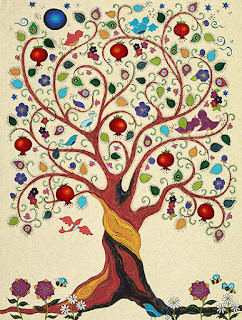Proper 9 A + Independence + 7.5.20
M. Campbell-Langdell
All Saints, Oxnard
(Ps. 45:11–18; Romans 7:15–25ª;
St Matthew 11:16–19, 25–30)
Happy Independence Day Weekend! Many of us have gotten caught
up in “Hamilton” fever this past weekend – that great work by Lin-Manuel
Miranda based on Ron Chernow’s book. We have joined the celebration of what
America is at its best- a place where immigrants and native dwellers can fully
live into their potential as dreamers and creators. A place for revolutionary
thought. A land made richer by its diversity and by al the separate histories
woven into its fabric by its many settlers and indigenous peoples.
But we know this nation is far from perfect. It is a bold
experiment, and some aspects of its original failures have come back to haunt
us in recent times.
In today’s scripture, Paul says: “For I do not do the good I want, but the evil I do not want is what I do. Now if I do what I do not want, it is no longer I that do it, but sin that dwells within me.”
In today’s scripture, Paul says: “For I do not do the good I want, but the evil I do not want is what I do. Now if I do what I do not want, it is no longer I that do it, but sin that dwells within me.”
And I must admit, as a kid, I always heard these as the words
of a perhaps overly tortured soul. Lighten up, Paul! Stop overthinking it. It
can’t be all that bad.
But reflecting on this passage in light of recent events, I
began to think less about personal sin and more about societal sin. And of
course, it returns to the personal because these things tend to reflect back on
us. As a white person I have continued to become aware in recent times not only
of whatever unconscious bias I might have about certain groups but also simply
how I live in a society that rewards me for something unearned and penalizes
others for something that they cannot and should not change about themselves.
And if that is not an example of what Paul is talking about, I don’t know what
is. We all try to be free from sin and mistreatment of our neighbor but no one
is perfectly able to avoid it because we are in a fallen world.
And this is highlighted by the fact that the society we live
in at this moment tends to trade in absolutes. Speaking of his generation,
Jesus says: “It is like children sitting in the marketplaces and calling to one
another, ‘We played the flute for you, and you did not dance; we wailed, and
you did not mourn.’” Basically, they were disconnected from what was real. Fake
news is nothing new. And Jesus saw people question his realness all the time.
All the time people saw his love and his truth and tried to twist it into a
lie.
But we as Christians know what’s what. We know what’s real and true.
As Winnie Varghese writes,
But we as Christians know what’s what. We know what’s real and true.
As Winnie Varghese writes,
“Let this not be another time where it can be said of us, we
were of our time. Fascism was taking over the globe, and we turned inward and
chose to spend our energy on defending the righteousness of our tradition or
the church.”[1]
Let us not be of our time. But let us be the dreamers of what
can be. Let us look past what is and see a better future. Just as Hamilton did,
for all his flaws. We are none of us perfect. In fact, I think there is a lot
of wisdom in acknowledging each of our roles in society. There is none of us
who is without some kind of privilege, and even some of the privileged are
underprivileged in some way. For example, I am a highly educated urban white
woman who is of middle to upper income, but I am a married queer woman and that
makes me different and outcast to some.
If we can each acknowledge our role – not only in some of society’s systems of oppression but also in our systems of liberation, we can more actively dream and bring about a more just society for all.
If we can each acknowledge our role – not only in some of society’s systems of oppression but also in our systems of liberation, we can more actively dream and bring about a more just society for all.
And then we will not be lost children, disconnected from
reality, but engaged and loving citizens of this country and this world, trying
to build a better future for the next generation. One in which fewer children
are afraid and more are allowed to dream and create and breathe free.
Amen.
Amen.




Comments
Post a Comment